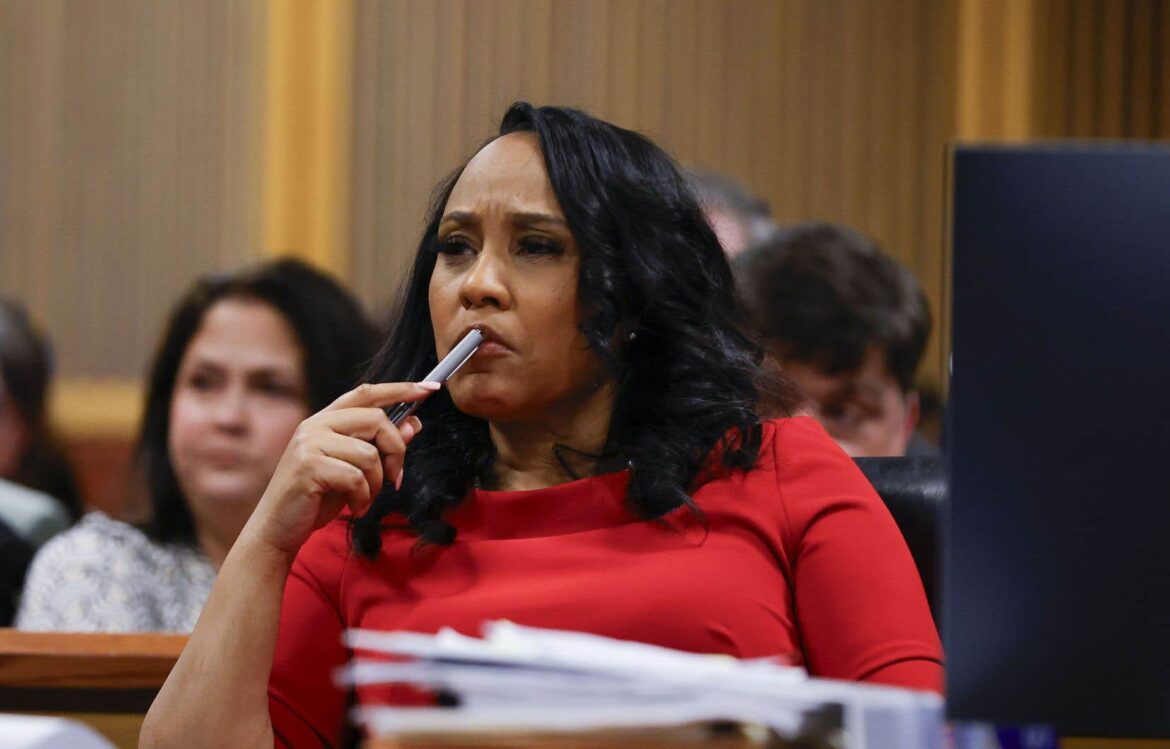The judge at Donald Trump’s trial in the state of Georgia for illegal attempts to reverse the results of the 2020 US presidential election on Friday rejected the prosecutor’s request for dismissal but demanded a reorganization of his team.
Judge Scott McAfee concluded there was insufficient evidence of a “conflict of interest” related to prosecutor Fani Willis’ intimate relationship with an investigator she hired in the case, Nathan Wade. The defendants claimed in particular that she would have benefited financially.
This decision removes a major obstacle to the holding of the trial of the ex-president and his 14 co-defendants, for which no date has yet been set. Targeted by four separate criminal proceedings, the Republican candidate in the November election against Democratic President Joe Biden seeks through his multiple appeals to go to trial as late as possible, in any case after the election.
But, concluding that there was “an appearance of inappropriate behavior” and denouncing a “huge lack of judgment” on the part of the prosecutor, the judge demanded the withdrawal of the case, either from Fani Willis and her entire team, or by Nathan Wade.
The latter presented his “resignation, effective immediately”, in a letter a few hours later, saying he was acting “in the interest of democracy, out of loyalty to the American people, and to move the matter forward as quickly as possible” .
The prosecutor responded in a letter “to accept this resignation, with immediate effect”, thanking him for having “had the courage to accept this mission” despite the risks for himself and his family.
Donald Trump rejoiced on his Truth Social network that “Nathan Wade resigned ignominiously”, wishing the same fate to the special prosecutor in his two criminal proceedings at the federal level.
“We will use all available legal options as we continue to fight to end this process,” his lawyer in Georgia, Steve Sadow, previously responded.
Cascading reports
A withdrawal from Fani Willis would have considerably postponed this trial. In November, the prosecutor proposed that it open on August 5 and demanded that the 15 remaining defendants be tried together.
The judge did not comment on a possible timetable, but indicated that he would favor two separate trials if there were still as many defendants remaining.
Four of the 19 people initially targeted by the indictment issued on August 14, notably under a law in Georgia (southeast) on organized gang crime, have already pleaded guilty.
They were sentenced to reduced sentences, without prison time, in exchange for their testimony at the future trial of the other defendants.
Mr. Trump’s co-defendants include his former personal lawyer, Rudy Giuliani, and his most recent White House chief of staff, Mark Meadows.
Furthermore, in New York, the judge in charge of Donald Trump’s criminal trial scheduled for March 25 in a case of concealed payments to an X-rated film actress during the 2016 election campaign announced the postponement, a priori until mid-April.
The Republican candidate has already managed to postpone his federal trial in Washington, initially scheduled from March 4, for attempting to illegally overturn the results of the 2020 election, by invoking criminal immunity as a former president.
The Supreme Court of the United States agreed to take up the question and set the debates for April 25, before a decision expected in June, or even July, the procedure being suspended until then.
Furthermore, Donald Trump’s trial for his alleged casual handling of classified documents, scheduled for May 20, should also be postponed for several months.
He is being prosecuted in this case for having compromised national security by keeping documents classified confidential in his private residence in Florida (southeast) after his departure from the White House in January 2021, including military plans or information on nuclear weapons.
If he were elected again, once inaugurated in January 2025, he could order a halt to federal proceedings against him.



